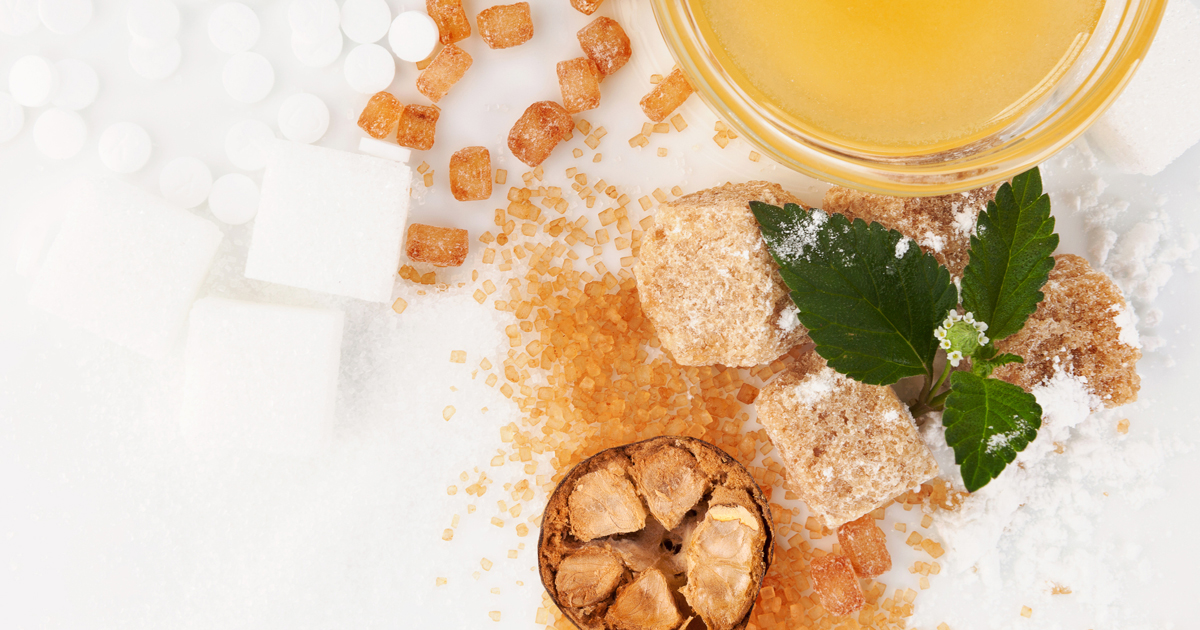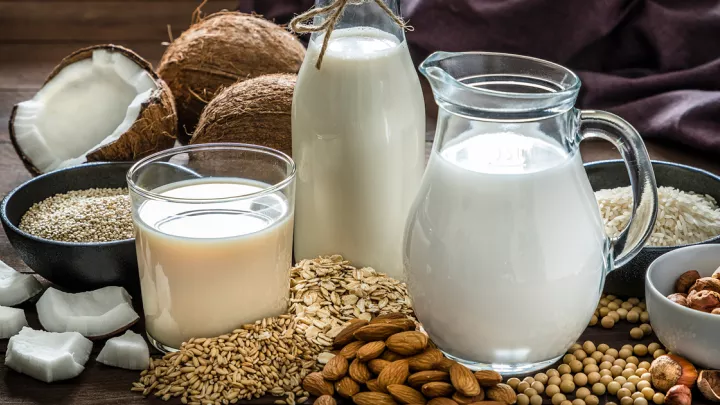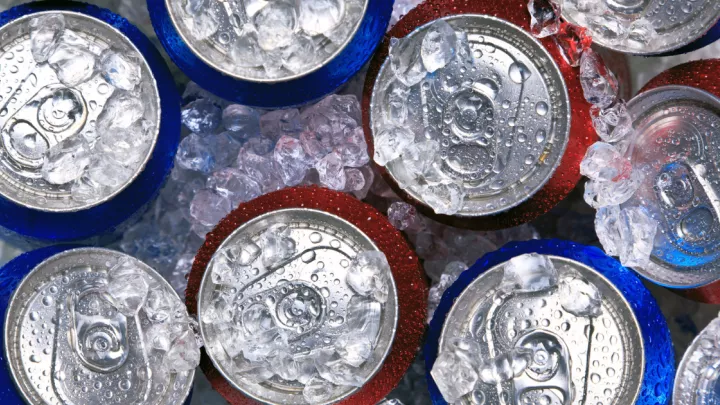Monk fruit, sucralose and other sugar substitutes

Sugar substitutes often contain zero calories, but are they good for you? Here we break down where five common sugar substitutes come from and how sweet they are.
"Zero-calorie sweeteners don't affect your blood sugar in the same way that sugar does," says Bariatrics Center nutrition therapist Jacque Schwartz, RDN, LMNT. "Products can claim to be calorie-free or zero-calorie as long as there are less than five calories per serving. Since you can use such a small amount to get that sweetness, they can say zero calories because you're taking in such minimal calories."
Monk fruit sweetener: natural, zero-calorie
Monk fruit sweetener or monk fruit extract is a natural, zero-calorie sugar substitute. It's processed from a small, round fruit typically grown in Southeast Asia. "Monk fruit sweetener has been used for a long time, but it's become more popular recently in the United States," says Schwartz.
You can buy this natural sweetener at the store and it's also found in some types of weight loss foods. "Some of the meal replacement products we offer in our New Direction® weight loss program use monk fruit sweetener," says Schwartz. Monk fruit sweetener is about 100 to 250 times sweeter than sugar.
Sucralose: artificial, zero-calorie
Sucralose is an artificial sweetener, but it comes from a natural source. "Sucralose is made by altering a sugar molecule," says Schwartz. Sucralose looks very similar to sugar, but the body doesn't absorb it. So you don't get any calories from it.
It is heat stable, meaning that it stays sweet even at high temperatures during baking. So sucralose works well as a sugar substitute in baked goods. It's 600 times sweeter than table sugar, so a little goes a long way.
Stevia: natural, zero-calorie
Stevia is derived from a plant called Stevia rebaudiana. It's about 200 to 400 times sweeter than table sugar.
"Stevia is a favorite for sugar substitutes," says Schwartz. "It's one of the first ones I'd recommend if people are looking for substitutes." You can get it in powder form or liquid drops at many grocery stores.
Aspartame: artificial, zero-calorie
Made by combining two common amino acids, aspartame is 200 times sweeter than table sugar.
There's been some controversy over aspartame's safety. But for most people, you'd have to consume a lot of aspartame before going over the FDA's acceptable daily intake. "The amount people usually consume hasn't been shown to be harmful, but there are other options if people want to avoid it," says Schwartz. For example, someone who weighs 150 pounds would need to drink 19 cans of diet soda in one day to go over the limit.
However, people with phenylketonuria or PKU should completely stay away from aspartame. "Basically, people with PKU can't metabolize aspartame," says Schwartz. Diet sodas often contain aspartame, so be careful to check the ingredients.
Agave: natural, high calorie
"Agave is like raw honey or maple syrup," says Schwartz. "You do get some carbohydrates and calories from agave, so the health profile is similar to sugar. But since it's so flavorful, you can get away with using less of it than you would with sugar."
Agave can affect your blood sugar and it does contain calories.
What's the best sweetener to lose weight?
Any of these options, except agave, don't have calories. So using a substitute instead of sugar is great for people trying to lose weight.
But does replacing sugar with these sweeteners make you crave more sweet things? It depends. "I've worked with some people who do crave more sweet things after consuming these sugar substitutes," says Schwartz. "But for other people, it's a great way to lose weight because they avoid all the extra sugar they'd normally consume."
But, there is some research that artificial sweeteners may change the bacteria in your gut, which affects how your body stores fat. So should you avoid sugar these substitutes or not? The answer depends on how much sugar you normally eat.
"We know that consuming too much sugar can have multiple health consequences, including being at an unhealthy weight. A healthy weight can help prevent an increased risk of multiple chronic conditions," says Schwartz. "So you can decrease some of that risk by using a zero-calorie sweetener. Studies have not shown clear evidence of an association between artificial sweeteners and cancer in humans."







